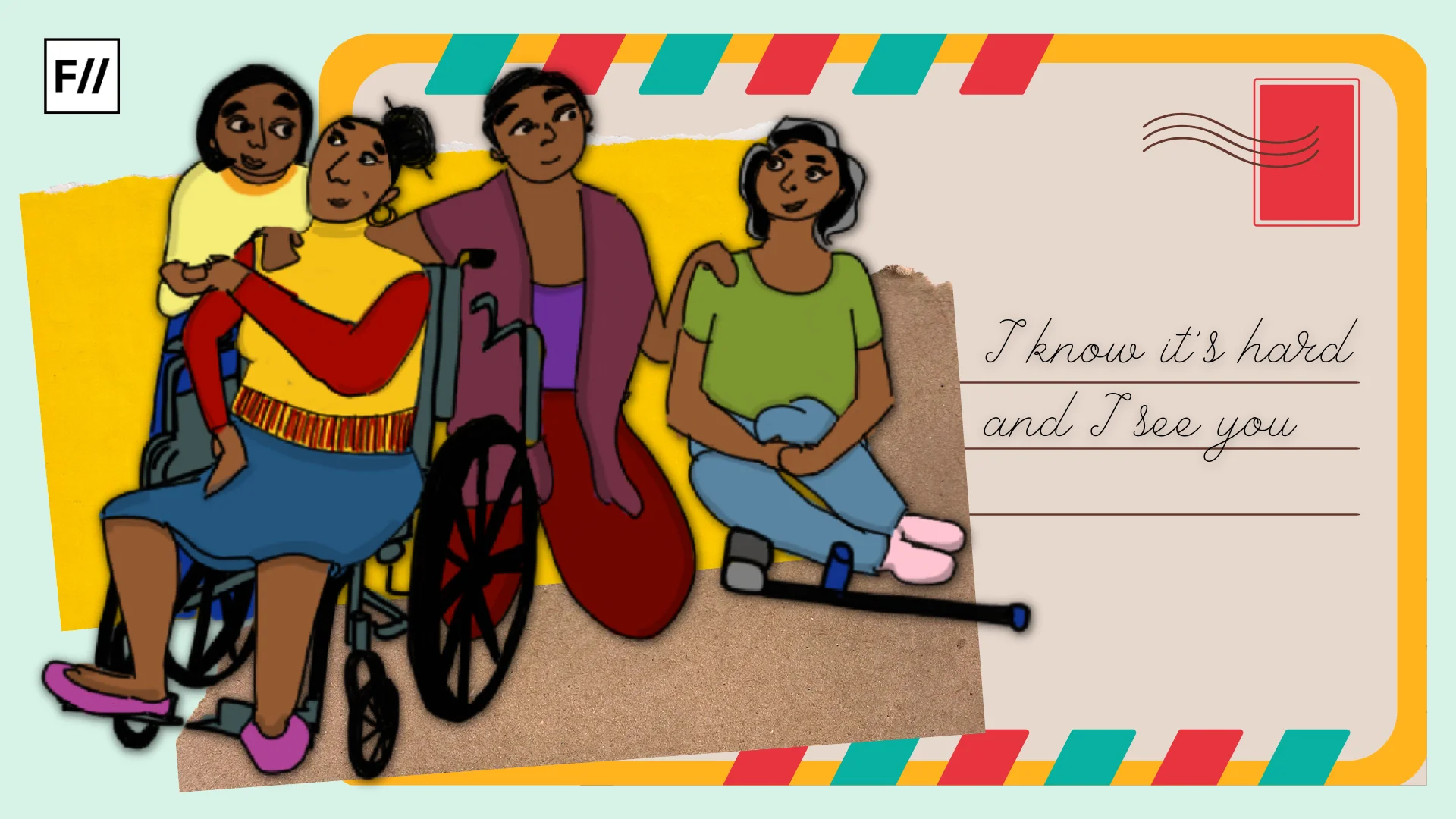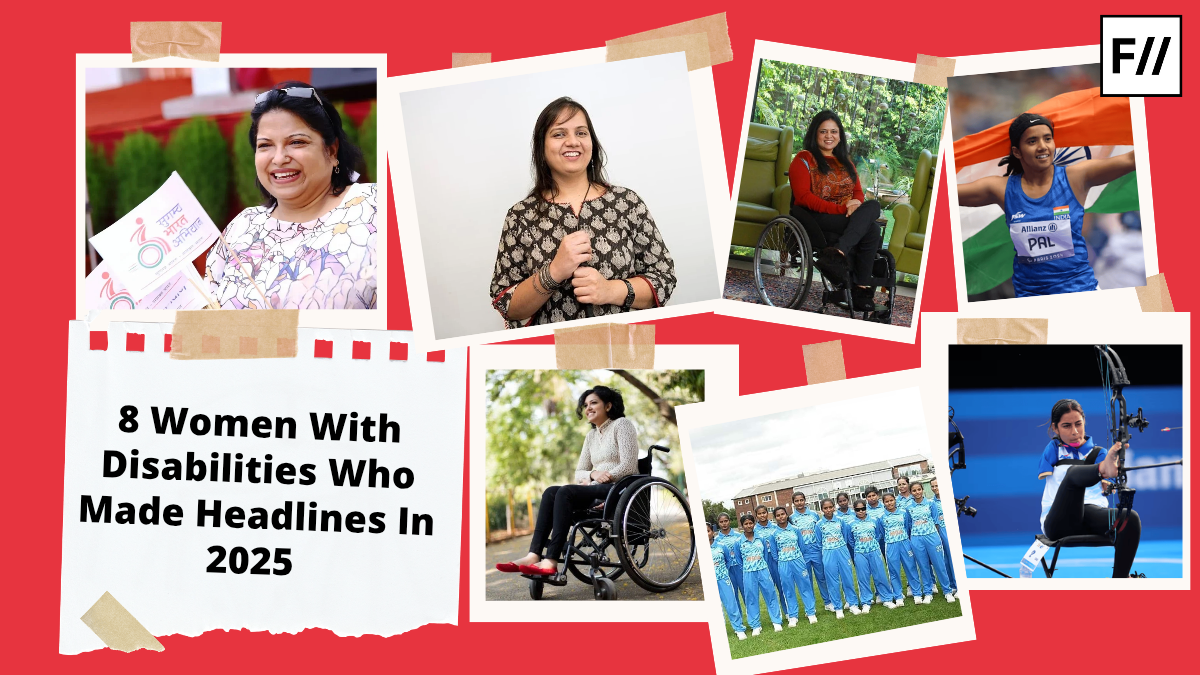I was sleeping through the day, weeping through the night. Nightmares visited me regularly. Food was something I hated and I craved for in equal measure. My favourite food stuff from the local restaurant had become my vodka. I would order it at around midnight and eat it, so that I would feel too heavy to move. I was listless and many a times I lay on my bed with my ear phones plugged in, binging on a web series that I wasn’t really absorbing.
Having gone through this before, working in disability rights, and having closely interacted with many people living with mental health conditions, I could absolutely recognise what was happening to me. This was not the first time I was slipping into depression in my life of 33 years. But that did not mean that I knew what to do about it.
Whenever I would have the strength, or when I tried to share it with someone, I felt like I had to justify why I was depressed. I would start listing the transitions, the instabilities, the incidents of life or rather the possible triggers till I told myself one day-stop, just stop. Depression is a condition, it could happen to you for any or many or because of a complex web of reasons. It is pointless to pull out every strand or to sit down and try and zero down to a reason – as if that would make it go away.
But people didn’t stop – “What is the big deal?’’, “This happens to everyone. Have some patience and courage, you are unnecessarily over reacting!” and “Itna kya ho gaya yaar that you are acting this way?” (What’s the big deal?), “Please Nidhi… You are a strong woman, how can you be depressed?”, “Life throws challenges at everyone, you think only you have them?”, “But you were working and smiling, then how can you claim to be depressed?” These were some of the closest people, mature individuals that I knew, and I realised they just don’t get it – but I wish they did.
As the weeks rolled by, I started accumulating another feeling, one that could tear you apart – guilt. I developed the guilt of missing out on time. Missing out on deadlines. Missing out on my to do list. And the questions began. Could I not pull up my socks? Was I not trying hard enough? Was I so weak? How much weaker will I become? The compounded cycle of blaming myself for not processing the grief/ trauma in time for recovery and for not being able to accept and let it go started pinching me. not realising that the guilt and the blaming were adding to the depression and were pulling me down into a spiral – missing out on recovery and time.
Depression could transform your personality from an extrovert into a person who doesn’t want a lot of interaction.
The first three weeks were a haze. I was barely aware of what I was doing. As someone who was systematic and planned, I found it tough to function, let alone follow through commitments and plans. It was only when the 4th week commenced that I let the helpless feeling envelope me. I wanted to snap out of this, but it was not a mild disappointment or a mild anything. It was not going to be easy. The struggle internally was that of a soul trapped, a soul that knew how to fly higher but somehow could not remember where its wings were or how to use it.
I was still sure of one thing – I wanted to embark on the healing process and I tried to recall the last time. The last time was not great, it had gone on for six completely unproductive months – and I didn’t want to go through that pain again. May be if I found that anchor to give me the basic support, the basic shove, I was sure I would manage the rest. But what is the anchor that keeps me going – my strong will and courage. And that is when I suddenly realised that my anchors were drowning themselves. So before I could resurrect them, I had to move ahead and save myself and stabilise me enough.
Somehow, I could think of the two options with me – psychotherapy or medications. Aware of the things that they involved, I knew I was not prepared for therapy. I needed medications, maybe they would give the nudge needed for me to break the surface of the dark lake I was drowning in. But I knew enough stories around the side effects of the medications. And I was scared until I spoke to my friends living with mental health condition. They made me realise that if I really wanted to start medications, it was important for me to trust the doctor and the medications that they would prescribe. between my sister who is a practicing doctor and my regular Ayurvedic doctor I started Ayurvedic medicines that would hopefully support my body and mind.
Also read: The Ministry Of Health Has No Idea What Depression Is About
As weeks rolled by, I realised one thing that depression is disruptive. It makes you feel ill and severely impacts your physical health. It could transform your personality from an outgoing, extrovert person, into a person who doesn’t want a lot of interaction, my depression pushed me from being a ‘doer’ to a person taking the back seat. I wanted to be with people, but I wanted to hide alone. I wanted some time off but couldn’t cope with being unproductive. This confusion was killing me.
My depression was tampering with my memory where events were a blank and recalling names felt like snatching at empty air. Being blind, I heavily rely on my memory and letting go of it made me feel further unconfident, further unstable and curtailed my independence. It felt like I was alienated from my best friend. I suddenly realise time has rolled by, events have happened, and I had no conscious memory of it.
As someone who has always been upbeat, proactive, sharp, planned, committed and reliable, I couldn’t rely on this new self of mine. I was trying very hard not to judge or resent this new person I had become. Sometimes I would push myself unnecessarily beyond what I thought my body and mind could cope with to see if I had any capacity left. Sometimes the former self in me would resurface and would engage in behaviours that needed courage but could also be possible triggers – just to see if my depressed self could handle it or not. I still don’t know if to thank the former self for still showing up or hate it for its vindictive acts towards me.
Being blind I heavily rely on my memory and letting go of it made me feel further unconfident and unstable.
The hardest has been to perform comedy in a state of depression. “Would I remember the jokes?” and “Would I have enough life in me to bring that humour in the set?” were some questions that plagued me. But I moved forward and performed with this new self that I had become, that probably was more nervous and needed more time for preparation. I only had to redesign how I did things which was probably different, slower or not as perfect as before. And slowly with building structures, seeking help, I did. I travelled across the globe with anxiety and depression, spoke on panels, attended and contributed to meetings and attempted to carry on work as usual.
It has been over 3 months, I am coping well, and with help from those who care. But the idea is that there are good days and bad. Some days I would draw up a long to do list for the next day thinking that I would accomplish it only to discover that I can’t focus. Some days I am just fatigued from apologising on the number of emails/ calls/ whatsapp messages I have not replied to. But it will get better and I want to believe it will. Although many many dark moments make me think, what if this doesn’t go away? A large part of the healing has come from the ability to talk about it openly with my sister and a few close friends who have lived through depression. The fact that someone understands, and doesn’t attach shame, or weakness, or any other such negative feeling to it has been both supportive and liberating.
Also read: Facing Abuse From Within The Disability Sector: My #MeToo Moment
For me, my depression has been a great teacher and I want to believe that I will emerge as a stronger, more empathetic and sensitive person. Depression has taught me to accept uncertainties; It has taught me to revise timelines, not to penalise myself for not being able to deliver after being stellar at it for years; It has taught me to innovate solutions in my personal and professional interactions and to find structures and systems that work for me; and it has taught me to pause when exhausted! But the most important thing that my depression has taught me is kindness. As an activist I offer kindness and compassion to all the people around me and those I meet through my work. But in this journey, I forget many a times that I deserve this kindness from me as well!
Nidhi Goyal is an activist and comedian working on disability rights and gender justice. She is the founder and director of Mumbai based non-profit Rising Flame and is a writer, trainer, researcher and artist. You can follow her work on Twitter.




